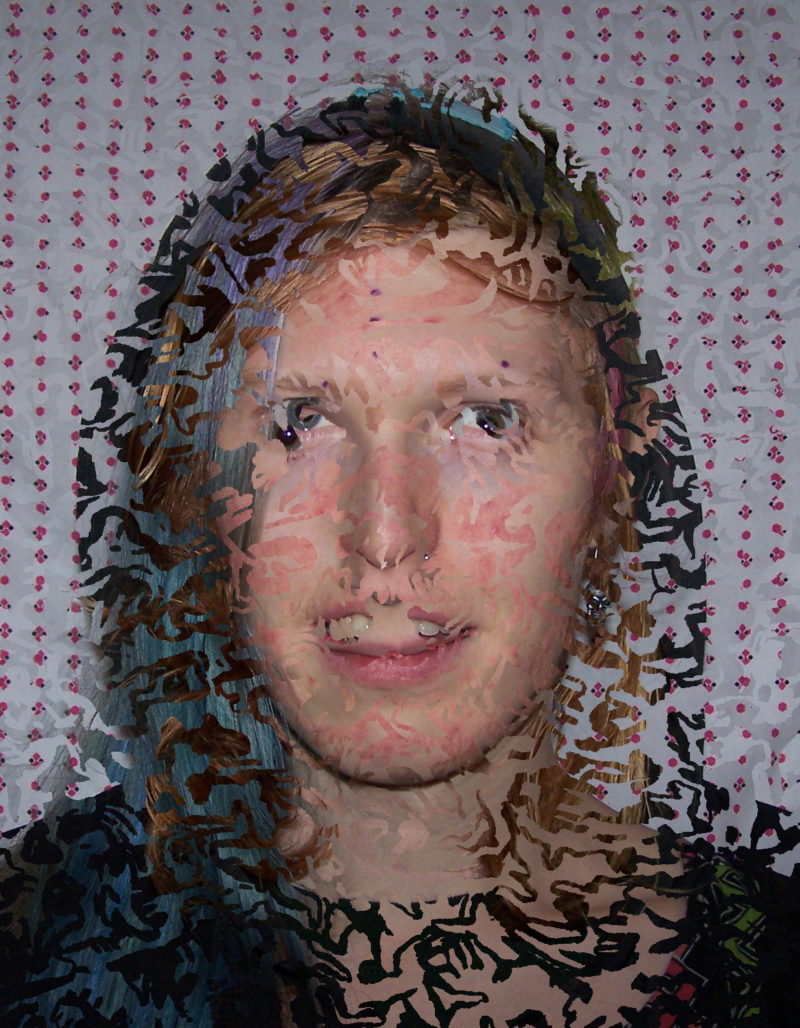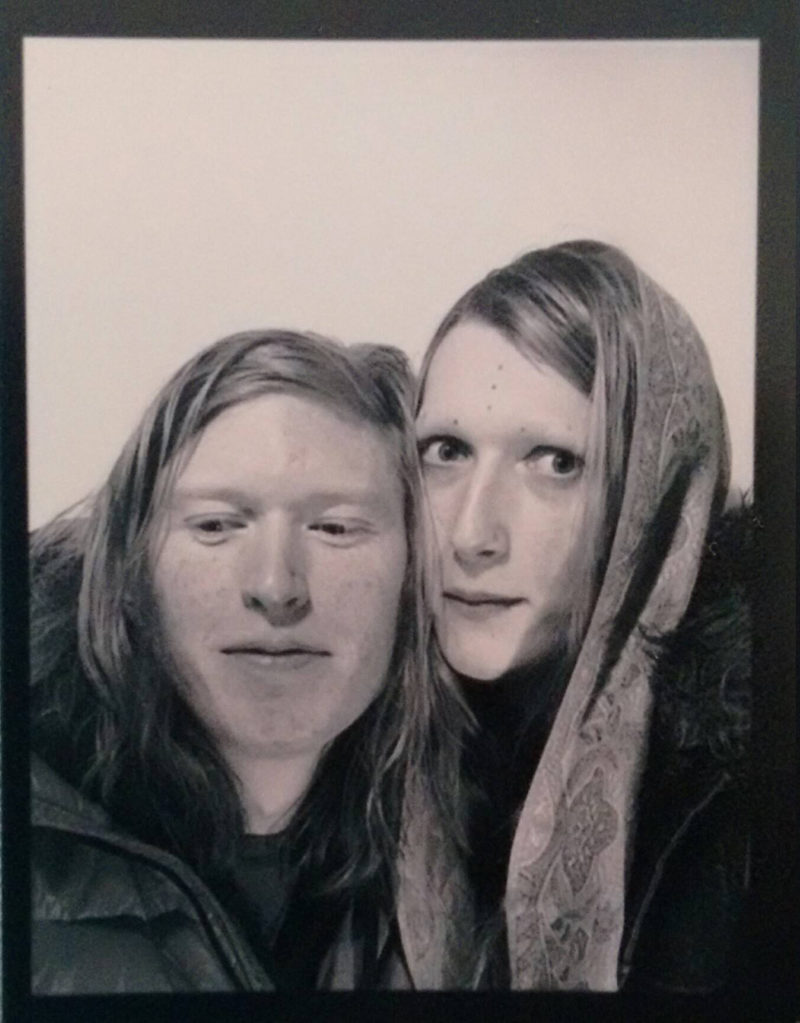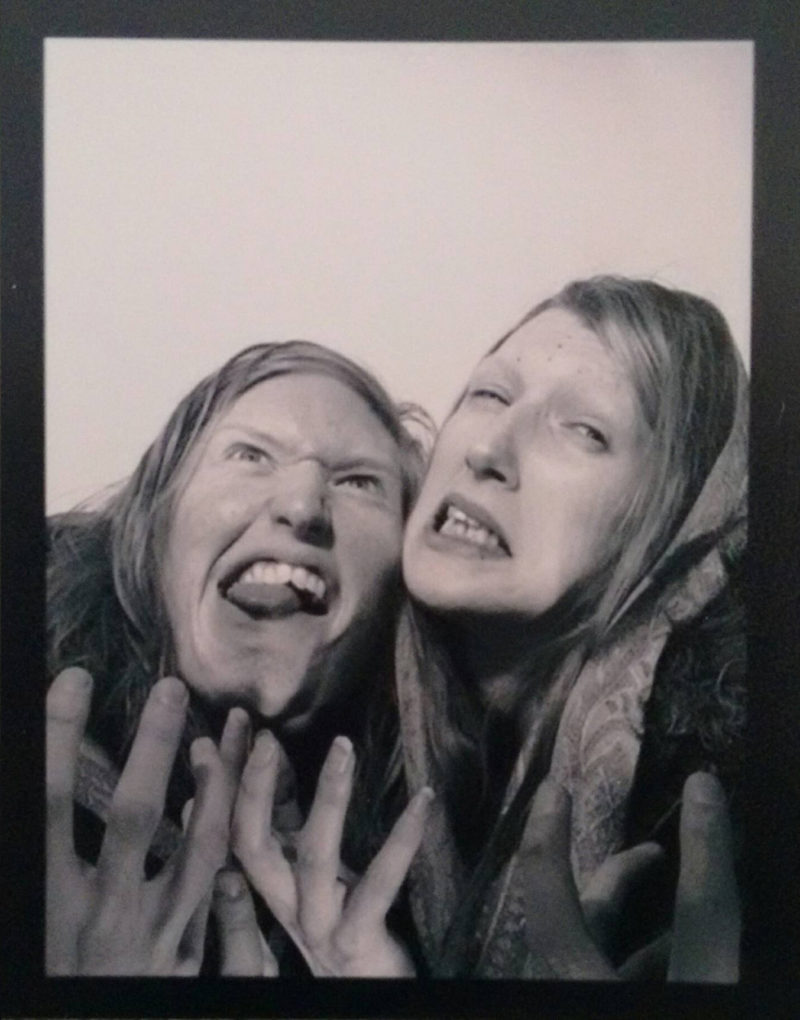Guttersnipe

niels latomme
You seem to be part of a very active scene based in Glasgow/ Leeds, about which Mel of Ashtray Navigations told me it has a long running history. She said that the freak empire is everywhere. How do you feel about this?
gretchen
I haven’t lived in Leeds for very long but it is a really great place for music, there are a lot of good bands. I feel honoured and happy to be part of such a vibrant scene and to have made so many friends that are talented musicians in such a short time (3 years now). I’m ashamed to say I’ve still never even been to Scotland (hopefully soon!) but Leeds does feel like it has a genuine “freak scene”, a close-knit community of arty, punk, weirdo types who have a real D.I.Y ethic.
robert
I am a Leeds native so I haven’t been privy to many other perspectives but it does feel healthy right now. I like this idea of a freak empire that never seems to die. There will always be a certain percentage of people who are attracted to outsider art and they seem to be everywhere, not just the obvious metropolitan areas.
nl
How did guttersnipe start out?
g
Well, the name originated from a goth/darkwave project my best friend and I had while in university, but that never got further than a few bedroom jams. We formed another goth band called Brugmansia in Excelsis when we first moved to Leeds and talked about maybe using the name Guttersnipe for a noise or free improv project. But again, that never really materialised. Then Robert moved in and the three of us started to do late night basement jams, sometimes free noise type things where we would be using drills and bits of metal, guitar feedback, vocals, paint cans etc. Or it would be two guitars and drums, blazing harsh improv and swapping instruments. This thing led to another group improv session in which my brother Hayden was involved—he now has a band from York called ZiZ.
This led to us forming a band that was called Insect Ritual/Guttersnipe. My friend moved out and Hayden lives in another city and me and Bobby were left to our own devices. What we came up with as a two-piece was vastly different to what we did with Hayden, so we decided we’d be Guttersnipe and our group with him would be Insect ritual.
r
We tried a few different set-ups and landed with Gretchen doing electronics and me playing prepared drums, mostly improvised, but with loose “sections” or “zones”. We lasted 6 months or so in this embryonic state, slowly working the guitar back in, arriving at the unwieldy sound we have now, with a kind of “fuzzy structures” approach where we are playing songs but there is still often an improvisational element.
nl
Can you give me 3 reasons for making music?
g
I can’t really break it down into three parts… My only reason for making music is that I am unable NOT to make music. I hear it in my head all the time, it’s in my body, in my heart…
It’s like a really big tic almost. I have asperger’s syndrome so it’s like an obsession for me, it’s my “thing”— just what I do, how I think and feel. Often I can’t express myself any other way. I’m not very good at a lot of other things… If I don’t make music or am put in a position where I can’t, I get very depressed and frustrated.
r
To find common ground with other humans in an unorthodox yet mutually satisfying way, to occupy myself with a task with few fixed boundaries, to get out of the house.
nl
What do you do outside being guttersnipe?
g
I guess I’m sort of a scientist—a cognitive psychologist specifically. I only have a Masters currently but I plan to start a PhD at some point in the future. I’m mostly interested in psychoacoustics, emotion, identity and the intersection between those topics. I also write poetry and am working on some stories as well. I like to draw too! Also I have a bunch of other musical projects—The Ephemeron Loop, Paraselene, etc—and I run the tape label Arcane Pariah Records.
r
I am a visual artist.
nl
England has something grim and vague at the same time. Cities are pretty raw, but the countryside is beautiful and quiet. What’s it like to grow up in between those two forces? And does it infect your music?
g
I lived in rural North Wales before moving near to the city of York aged 12. However, it was a remote village which was an hour away from the city, so I had this dissonant experience of being in a city, going to school, knowing people who had always lived in the city and getting to go to record shops and gigs, but having to go home where it was really rural in comparison and there were no neighbours or anything. Both have their positives and negatives—I really like the urban aesthetic of cold concrete and lights and tall buildings, there’s something very melancholic about cities, plus I love going to see live bands (and being able to buy vegan supplies)! But even now I do miss the woodlands and feeling of distance and isolation that comes with living in a more rural area, which has a different sort of beauty and sadness to it. Getting away from the city is totally necessary from time to time, even though I like Leeds a lot and Yorkshire does have quite a good mix of urban and rural.
A lot of what distresses me comes from people. I’ve always felt very alienated from people in general and unable to relate to others, but I value what friendships I do have immensely. I think these experiences of contrasting environments have certainly affected the music I make. A sense of dissonance and mixed aesthetics. I think both cities and countryside have a mysterious quality to them, which has inspired me in different ways in the past.
r
I feel pretty grim and vague a lot of the time so maybe it has affected me more than I know.
nl
What are your favorite bands of this moment?
g
If you mean bands that are “current” and active right now, then Sweat Tongue, Cloak of Altering/Gnaw Their Tongues, Islam Chipsy & EEK, Massicot, Ultrademon, Drainolith, Jooklo Duo, Fat Worm of Error, Le1f, Aritomo, Wormlust, Zebra Katz, Star Turbine, Margy Pepper, Junko, Nissennenmondai, Oranssi Pazuzu. Local people like Beards, No Form, Ashtray Navigations, War Lass, Hawthonn, The Bongoleeros, VCO, Dead Badgers, Sievehead… Too many to mention.
r
I will add that Leeds post-punk band Beards are touring around Europe in April this year. So look out for them, a must for fans of danceable, bizarre punk stuff like Delta 5 and Beefheart maybe? A great band I came across recently was SBSM from Oakland in the U.S.—drums and vocals and broken synths fitting nicely between slime-out punk and abstract landscapes with furious vocals. There seems to be a dearth in bands that straddle this gap between avant-garde and traditional rock format, especially as Sightings and AIDS Wolf split up in recent years. If folks reading this know any good hidden stuff let us know!

nl
I found about your record thanks to the review of KEK. He described you as The musical palette-perge I didn’t know I needed, a demasculinised anti-rock ear reset. Also Ksiezyc claim their femaleness. How do you feel about this idea of masculine or feminine music?
g
That is a very interesting idea, though I think it is often hard to define what constitutes a “gendered” aesthetic in music and largely depends on the interpretation or intent of the musician(s), though there are undoubtedly archetypes which influence these kinds of categorisations. I’m a transgender woman, so have definitely spent a lot of time analysing the gendered attributes of myself and my creativity. I think a lot of the music I make has a consciously “female” quality to it (what I see that to be, anyway) though I know that others may not perceive that at all or make similar music which does not evoke those ideas. I’m not sure that I explicitly do that with Guttersnipe, as my inspiration for this band mostly comes from the conceptual space of “Other”, so I’m more likely envisioning myself as a mutant, a polyclade worm, or an inanimate object than as “a woman” exactly.
Although I think a certain level of gendered performance is inevitable. We both identify as queer and have talked a lot before about whether we are a “queer band” as most other queer bands tend to openly discuss queerness in their lyrics as a way to raise an issue, protest or provoke thought about how queer people exist in the world. The lyrics I write for Guttersnipe are very abstract and probably quite impenetrable, though I do see them as being “queer lyrics” or dealing with “queer concepts” even if they are more psychedelic and obtuse.
I know that Gay Beast used queer theory as a compositional tool and they sound very different from most pointedly queer bands. When I’m writing guitar parts for Guttersnipe I often try to channel (amongst other things) a kind of queerness that is rather hideous and hysterical; the scarier, garish side of a queer/homosexual aesthetic (like the sort exemplified by John Waters’ films). Non-human females that practice sexual cannibalism like the praying mantis and various spiders or the “female ideal” in me that is personified as a 12 year old girl with a shrill voice and shiny, neon clothes, jumping up and down on the bed and shrieking after eating too much sugar. Or unpleasant experiences unique to the female body like breast growth or menstruation—which I think is something very powerful and not vulnerable—rather than the social stereotype of youthful femininity as cute or pretty or serene.

Women suffer a lot in a patriarchal society and my own experience of that suffering will always influence how I express myself creatively, but Guttersnipe is certainly not a negative band so I think the gendered aspects of our music are more positive than that. I really resent the idea that only men are allowed to be ugly/scary/fucked up or cranking out loud, harsh, rock music. I don’t think that music should necessarily be only “feminine” or “masculine” though. The same goes for people, no-one should have purely feminine or purely masculine traits. They’re Platonic ideas that are embodied through performance, not some sort of index of essential components. There is a lot of variability in how they manifest. A mix of both (or more) is best—almost all my favourite bands have male and female members. Additionally, we are a boy/girl duo so of course this has been discussed before, how it relates to the themes of dissonance and union that occupy our compositional headspace which is often centred around abstraction of musical gestures, so it is of interest how notions of gender and valence might be represented through spectral/temporal/dynamic qualities. Although we don’t often focus on these themes explicitly.
r
Nature moves towards equilibrium and given the damage done by the privileging of masculine values over the last however many centuries it is important that we can reconnect with parts of ourselves that have been trodden down for so long. Music is one of the easiest areas to explore these avenues together because of the magic of performance, one artist or group can present or embody many viewpoints and our relationships become more complex and more healthy.